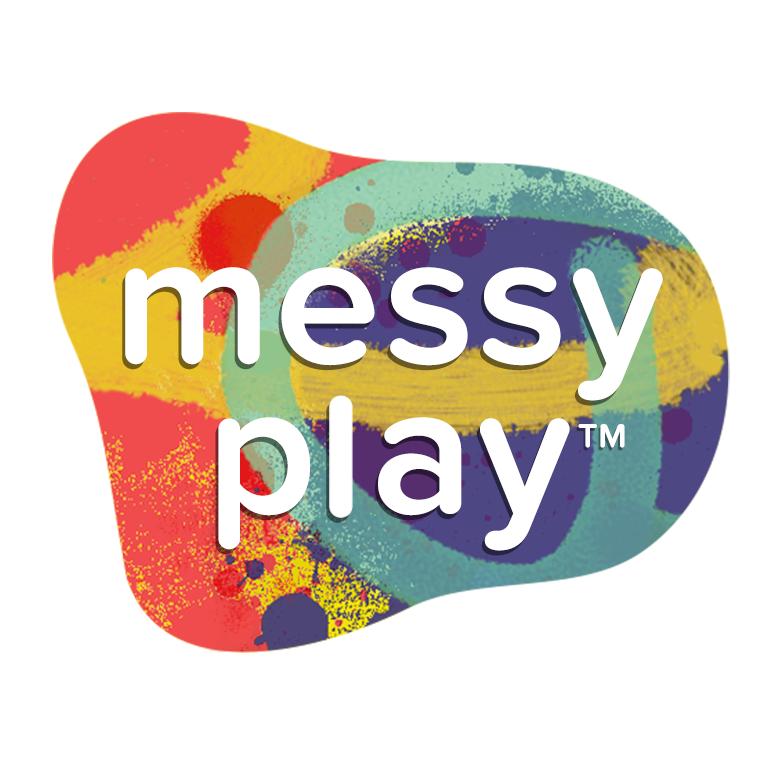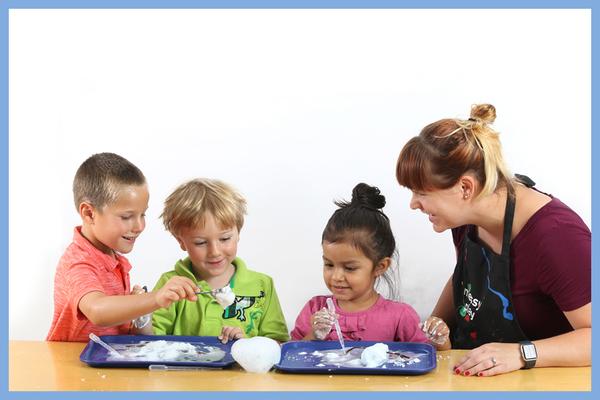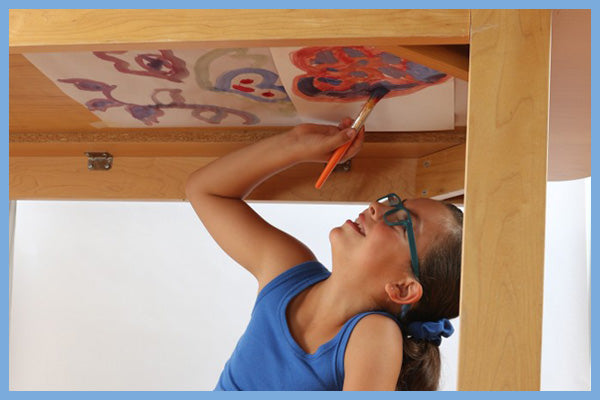Messy Play Teaches Preschool Math Concepts

Math is a skillset that all adults need to utilize for daily life management, so why not get started teaching your kiddos early?! You could try to teach them how to balance a budget or understand how much they’ll be paying in taxes (if you succeed at this, please, share how!). Or, you can introduce them to preschool math concepts through play!
Messy Play Kits offers a number of activities that enhance your child’s preschool math concept skills. Here are three ways Messy Play promotes learning complex math problems through play.
How to Develop Preschool Math Concept Skills with Messy Play
Counting
Try counting together as you measure and pour materials together. Did it take one bottle or two for the reaction to occur? How many scoops of rice does it take to fill the tub? When you use a smaller cup, does it take the same number of scoops or a different number? Not only is this more fun than counting by rote, but you're laying the groundwork for crucial math concepts and showing how math is applied in everyday life.
There are important rules about counting that children need to understand before they have a firm grasp of the concept. The more you count together and model these rules, the easier it will be for your child to understand. For example, one-to-one correspondence is the idea that when you count, each object gets assigned one number and only one number, and vice versa. They also learn cardinality, the idea that the last number you say when counting is the number of items you have (if you count to 10, then you have 10 items). When you model counting for your child, they learn these subtle but crucial counting rules.
Shape Identification
Encourage your child to describe the shapes of the items in your bin. Can they find all the triangle pieces? Do the square blocks move differently than the round balls? Learning to recognize shapes helps kids identify and organize visual information, and it prepares them for future math and reading skills (Geometry 101!). Recognizing shapes is an early step in learning numbers and letters, helping your kiddo to further develop their preschool math concept skills.
Matching and Comparing
With a group of sensory bin items, ask your child to identify the one that is different. Which flowers or butterflies have matching shapes or colors? Which ones are different? Matching and comparing activities help to lay the foundation for pattern recognition, an important foundational math concept.
. . .
Sensory Bins are great building blocks for these important math concepts, since they include a wide variety of toys and materials for counting, shape identification, and matching! We have lots of different Sensory Bins at Messy Play Kits, including a monthly subscription, and we also have tips on making your own!
Messy Play is a great way to teach your kiddo preschool math concepts, while having fun! So, let’s begin with counting now, then the balancing of budgets and tax calculations will come much easier later! Or will they…?


To fully leverage the math skills taught by messy play, sign up for a monthly subscription and receive a new activity box each month!


